Best Books
by Powell's Staff, November 18, 2022 8:46 AM
Best Fiction of 2022 | Best Nonfiction of 2022 | Best Debuts of 2022 | Best Sci-Fi, Fantasy, Horror, Romance & Graphic Novels of 2022 | Best Kids' and YA of 2022
As fun as it is to put these lists together, it’s also so, so difficult, because there are always too many books we want to include. This year, we did our best to contain it to 10 books, but the more we read and discussed and argued, the more we wanted to add an extra 5, and then another 5, which is how we ended up here.
Below, you’ll find the 27 fiction titles that booksellers at Powell’s couldn’t stop raving over this last year. (It was supposed to be a clean 25! And then we realized we miscounted and couldn't bear taking one off. So here we are.) No matter the flavor of fiction you prefer, we're sure you'll find something on this list to devour.
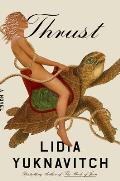 Thrust
by Lidia Yuknavitch
Thrust
by Lidia Yuknavitch
This alarming, beautiful, visceral, complicated, intimate, polyphonic novel is astounding. Trying to describe it feels futile — calling it a constellation feels like the best metaphor I can come up with — so instead I’ll point you to my Powell’s Picks Spotlight, where I wrote, “Despite its heft and the weight of the topics it dwells on (including but not limited to immigration, climate change, bodily autonomy, freedom, desire, survival), Thrust is a hopeful book. It shows us a world that might be able to build beyond its brokenness. Imagine! Despite everything: hope.” — Kelsey F.
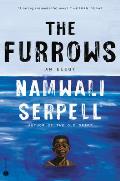 The Furrows
by Namwali Serpell
The Furrows
by Namwali Serpell
This book gets at the quick of grief: how consuming and barbed it can be; the strange, invisible edges you don’t know to watch out for; and the way it clings to you for years, like a small parasite welded to your skin, until everything you brush up becomes stained, too. Serpell’s book is incredible and exacting and feeling. When Cassandra Williams is 12, she loses her brother in a tragic accident; for years afterward, she’s haunted by his image, both certain and not certain that she sees him everywhere. The Furrows stabs at the liminality of grief and mourning and how impossible and improbable the entire endeavor can seem. Read this book. — Kelsey F.
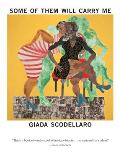 Some of Them Will Carry Me
by Giada Scodellaro
Some of Them Will Carry Me
by Giada Scodellaro
This collection’s title story comes first (in... many senses of that word), and manages to set the rest of the book’s tone: strange and slippery, febrile, engaged with the human condition, what it means to exist alongside other humans experiencing their worlds in deeply human ways, and how so much of living in the world means feeling both larger and smaller than you really are. This collection is incredible, engaging, surreal, and so, so funny. Dorothy Project always gets it right. If you need more convincing, here are two short stories from the collection. — Kelsey F.
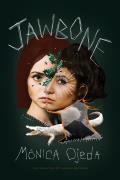 Jawbone
by Mónica Ojeda (tr. Sarah Booker)
Jawbone
by Mónica Ojeda (tr. Sarah Booker)
This book is challenging in all of the right ways. Ojeda's experimental use of language is well-preserved in Booker's English translation. Jawbone straddles the line between horror and pure psychological fiction, playing with symbolism, psychoanalysis, and pop culture references to weave a fascinating meta take on the horror genre. It's often gross and unsettling, and it's not like anything else I've ever read before (which is one of the highest compliments I could give). — Mar S.
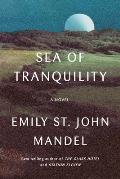 Sea of Tranquility
by Emily St. John Mandel
Sea of Tranquility
by Emily St. John Mandel
Emily St. John Mandel's Sea of Tranquility really surprised me. Like so many other people, I read and loved Station Eleven, but I wasn't prepared for the sparse poetic style of her new novel. I read this in one afternoon a couple months ago, and haven't been able to get it out of my mind since. — Adam P.
It is so nice to be back in the capable hands of Emily St. John Mandel. This book is a wonder — compelling and charged, musical and shattered. It jumps through time and space, asking questions about art and desire and love and loss. I cannot recommend it enough. — Kelsey F.
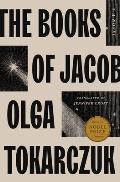 The Books of Jacob
by Olga Tokarczuk (tr. Jennifer Croft)
The Books of Jacob
by Olga Tokarczuk (tr. Jennifer Croft)
This new book from Nobel Prize–winner Olga Tokarczuk, the follow-up to her astounding Drive Your Plow Over the Bones of the Dead, is just as astounding while also being much heftier (at nearly 1,000 pages!). Part epic, part satire, part history, many parts mythic — there aren’t enough adjectives in the world to get at just what a feat of literature The Books of Jacob is. About a self-proclaimed messiah from the 18th century, the book traverses through heavy themes (theology! diplomacy! redemption!), delightfully drawn characters, European villages and monasteries, and so many other wonderful and wonderfully strange threads. The book is intimidating to pick up, absolutely, but it makes that investment worth your while in just how much it has to give. — Kelsey F.
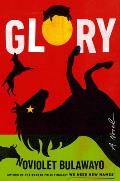 Glory
by Noviolet Bulawayo
Glory
by Noviolet Bulawayo
I had no idea what I was getting into when I started Glory, an epic allegory inspired by the overthrow in 2017 of the former Zimbabwean president Robert Mugabe. Set in the fictional African country of Jidada and centering a cast of all animals (no humans allowed!), Glory is filled with chickens and cats and dogs and sheep and crocodiles and devoid of societal constructs (gender, how many legs we walk around on, etc). The result is an astounding delight you’ll have to read to believe. — Lucinda G.
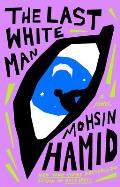 The Last White Man
by Mohsin Hamid
The Last White Man
by Mohsin Hamid
I am often resistant to allegory in practice (or even in concept, to be honest), but Mohsin Hamid’s The Last White Man has me questioning my priors, because he uses the literary device to create that rarest of things: a novel that is both simple and nuanced. This tale of the consequences that flow from an inexplicable racial upheaval is both gripping and gentle, full of a generous, yet restrained wisdom. — Keith M.
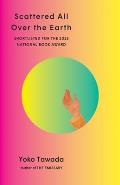 Scattered All Over the Earth
by Yoko Tawada (tr. Margaret Mitsutani)
Scattered All Over the Earth
by Yoko Tawada (tr. Margaret Mitsutani)
Yoko Tawada has never shied away from the complicated, scary realities of climate change. Most of her books deal with climate disasters in some capacity and Scattered All Over the Earth is no different. Somehow, it manages to charm its way through the dark thought experiment: what if, when the oceans rise, they swallow Japan? What will happen to Japanese people living abroad? How will Japan be remembered? And how will the climate refugees find one another? This is an honestly delightful read about finding friends at the end of the world and the importance of finding a shared language. — Kelsey F.
For more, read Kelsey F.’s Powell’s Picks Spotlight on Scattered All Over the Earth.
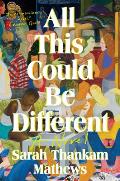 All This Could Be Different
by Sarah Thankam Mathews
All This Could Be Different
by Sarah Thankam Mathews
There's that moment in your early 20s, when you’re first encountering adulthood and all the things you weren’t warned about, that's somehow both terrifying and oddly charming; Sneha, the narrator of Sarah Thankam Mathew’s debut, All This Could Be Different, is in the thick of it. There are love interests and demanding bosses, childhood traumas and annoying spreadsheets. Sneha is looking for love, community, and stability, just like we all are, and finds and loses them just as we all do. This is a moving, often-hilarious novel from an exciting new author. — Kelsey F.
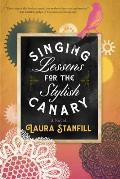 Singing Lessons for the Stylish Canary
by Laura Stanfill
Singing Lessons for the Stylish Canary
by Laura Stanfill
The writing is whimsical but transcends whimsy. The story is magical but transcends magic. Laura Stanfill's Singing Lessons for the Stylish Canary is deceptively delightful, exploring real-world themes of connection, loss, feminism, death, and identity, all wrapped up in lyrical language, bountiful cleverness, and endless wit. Resplendent and transcendent. — Gigi L.
This lovely, whimsical, humorous, smart, and fantastical book brightened up my winter reading (lucky enough to read an advanced copy). Take yourself out of this wearisome world and into Laura Stanfill's magic. — Doug C.
For more, check out our Q&A with Laura Stanfill.
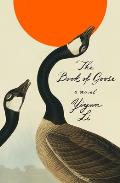 The Book of Goose
by Yiyun Li
The Book of Goose
by Yiyun Li
The Book of Goose is already getting the coveted Ferrante comparison, but Yiyun Li is the sort of phenomenal author who's best comp is her past work — she's incomparable. I loved her latest book, a historical, literary tell-all novel that centers on an obsessively intimate girlhood friendship with at least one dark, life-altering secret. If you’ve read any of her past work, you know you’ll love this one. If you haven’t, get ready to order them all after finishing The Book of Goose. — Michelle C.
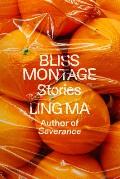 Bliss Montage
by Ling Ma
Bliss Montage
by Ling Ma
I almost never finish short story collections but I absolutely could not put this one down. Weird, wry, wonderful, searching, and observant — Ma is a delight to read. — Sarah R.
I loved Severance, so when I say I loved this collection more, that really means something. A truly incredible collection. — Kelsey F.
For more, check out Kelsey F.’s Powell’s Picks Spotlight on Bliss Montage.
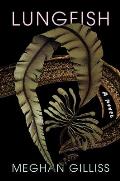 Lungfish
by Meghan Gilliss
Lungfish
by Meghan Gilliss
God, the language in this book is worth luxuriating in. Lungfish is the debut novel from Meghan Gilliss, a promising author who’s also worked as a bookseller and a librarian, something that feels reflected in the deeply considered way she layers words and stories. The novel’s protagonist, Tuck, is a mother who finds herself essentially squatting in an old family home on an island in Maine, left with little-to-no money to feed herself, her young kid, and her husband, who is in the midst of intense opioid withdrawal. Their life is a day-to-day, visceral struggle, as Tuck works to find spare change, extra crackers, and any fleeting threads of hope. The story may feel occasionally bleak, but it is always loving and thoughtful and surrounded by a beautifully rendered, vivid landscape. — Kelsey F.
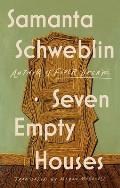 Seven Empty Houses
by Samanta Schweblin (tr. Megan McDowell)
Seven Empty Houses
by Samanta Schweblin (tr. Megan McDowell)
Samanta Schweblin’s work is so consistently uncanny, evocative, occasionally abrasive, beautifully startling, and consistently surprising, and yet this story collection still managed to exceed my expectations. I haven’t stopped thinking about: the mom who wanted to know what to do about those people with the three living rooms; the naked grandparents in the window; the wheezing, agoraphobic wife. Schweblin’s brain is fascinating and labyrinthine; I’m so grateful we get these little (house)keys into it. And McDowell’s translation is, as ever, beautifully done. — Kelsey F.
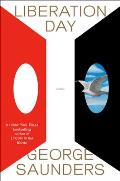 Liberation Day
by George Saunders
Liberation Day
by George Saunders
George Saunders makes a triumphant return to the short story form in Liberation Day. These nine stories revisit the quirky language of his early collections, and in them Saunders continues to find ways to uncover emotionally resonant moments in extremely unusual situations. — Adam P.
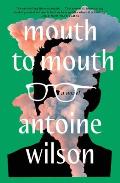 Mouth to Mouth
by Antoine Wilson
Mouth to Mouth
by Antoine Wilson
I loved this suspenseful novel, these mysterious characters. Antoine Wilson has created a situation worthy of Hitchcock, or of Highsmith. Mouth to Mouth asks if we can ever know the truth about those we love, or indeed, ourselves. — Adam P.
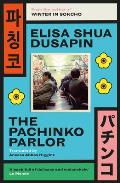 The Pachinko Parlor
by Elisa Shua Dusapin (tr. Aneesa Abbas Higgins)
The Pachinko Parlor
by Elisa Shua Dusapin (tr. Aneesa Abbas Higgins)
The follow-up to Dusapin’s National Book Award–winning Winter in Sokcho, The Pachinko Parlor is slim, strong, and startling. The novel focuses on Claire during a summer visit to her grandparents in Tokyo where she takes on a temporary job tutoring a young girl in French. It’s a controlled, beautiful book about the distance between languages, cultures, and family, and how unnerving it can feel to find yourself stuck between many at once. — Kelsey F.
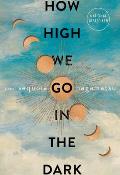 How High We Go In the Dark
by Sequoia Nagamatsu
How High We Go In the Dark
by Sequoia Nagamatsu
My goodness, this book. Set aside any misgivings you might have about reading a pandemic novel during a pandemic. These gracefully interconnected narratives have their roots in familiar territory, but their branches arc and sprawl beyond the world we know into the far reaches of Sequoia Nagamatsu’s imagination. The result is an immersive, tender, life-affirming book that left me both wonderstruck and — much to my surprise — comforted. — Tove H.
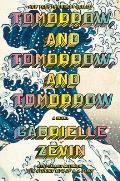 Tomorrow and Tomorrow and Tomorrow
by Gabrielle Zevin
Tomorrow and Tomorrow and Tomorrow
by Gabrielle Zevin
Video games and their infinite potential as transgressive, powerful, artistic endeavors told through the incisive and probing medium of literary fiction? It’s about time. If you’ve ever loved an indie game, sought meaningful connection, or considered the vast possibilities of human creativity: this one’s for you. — Sarah R.
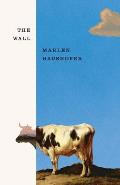 The Wall
by Marlen Haushofer (tr. Shaun Whiteside)
The Wall
by Marlen Haushofer (tr. Shaun Whiteside)
That this book includes an introduction from Claire Louise-Bennett, author of Pond and Checkout 19, says a lot about readers might expect when they pick this one up. The Wall is somehow both utopic and dystopic, haunting and lyrical, filled with dread and love. After a middle-aged woman wakes up on her farm, an invisible wall now separating her from the world, she must learn how to survive on her own, with only the company of her animal companions. Sheila Heti said about The Wall: “I don't understand why this book is not considered one of the most important books of the twentieth century.” I couldn’t agree more. — Kelsey F.
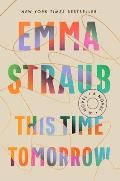 This Time Tomorrow
by Emma Straub
This Time Tomorrow
by Emma Straub
I came to This Time Tomorrow excited for a time-travelling, time-loop story with emotional resonance, and Emma Straub delivered. Reading this book gave me that ever-rarer feeling of obsessive teen excitement, but in a very adult way (I felt myself aggressively underlining poignant observations about the not-quite-disappointments with aging out of potential life paths while staying up all night to finish it). A perfect novel brimming with speculative tropes rewired for realistic human behavior, gentle love letters to people and places in the past, and thinking about knowing and loving people across all the timelines of your life and theirs. — Michelle C.
You ever pick up a book and realize halfway through that it was exactly what you needed? This Time Tomorrow was that book from me. It was funny, it was poignant, it was awkward (in the best way!), but most importantly, it was real. It opened my eyes in unique ways, and I think that this is a book that will stick to my ribs from here on out. Brilliant. Absolutely brilliant. — Katherine M.
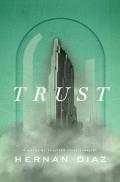 Trust
by Hernan Diaz
Trust
by Hernan Diaz
The follow-up to his Pulitzer Prize finalist debut (In the Distance), Hernan Diaz’s Trust is an extraordinary work confronting wealth, privilege, and power. In a dazzling polyphonic display of storytelling verve, Diaz reckons with the distorting, disrupting effects of affluence and the many ways it silences those without the pay to play. With a timely resonance in our age of money worship and moral bankruptcy, Trust is a new novel as ingeniously composed as it is richly rewarding. — Jeremy G.
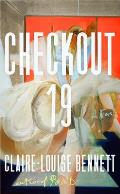 Checkout 19
by Claire Louise Bennett
Checkout 19
by Claire Louise Bennett
The 2022 book about books. Claire-Louise Bennett proved herself a singular master of narrating a vast interior self with Pond in 2015 and returned this year in glorious form with Checkout 19. Here is a novel about one woman’s becoming told through the ideas and experiences and thoughts that come her way on the wings of reading and writing. Plus, it’s just astoundingly funny. Like, on a sentence level. You’ll be contemplating a deep reality one sentence then the next laughing at “that soupçon of chipper sarcasm that typically permeates the many pithy observations of the proletariat.” Which, to be fair, is also a deep reality. It’s hard to describe, but the many piercing, surreal, and beautiful things this book manages to be is a wonder. — Sarah R.
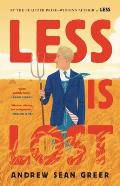 Less Is Lost
by Andrew Sean Greer
Less Is Lost
by Andrew Sean Greer
In this worthy follow-up to Andrew Sean Greer's Pulitzer Prize–winning Less, we again follow Arthur Less on a journey of self-discovery, this time on a road trip through the United States. Less is Lost is a witty, poignant, and often hilarious book. — Adam P.
When I read Less, I was surprised by the degree to which it utterly delighted me. When I read its unexpected, wonderful sequel, I was not surprised. But I was again utterly delighted just the same. — Keith M.
For more, read Keith M.’s Powell’s Picks Spotlight on Less Is Lost.
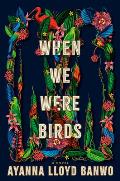 When We Were Birds
by Ayanna Lloyd Banwo
When We Were Birds
by Ayanna Lloyd Banwo
What a great, fun, and complex book — part love story, part ghost story, all beautiful — and all the more impressive for being Ayanna Lloyd Banwo’s debut! The story centers around two characters: Yejide, a young woman with necromantic powers she’s slowly learning to harness, and Darwin, a country boy looking for work in the big city but only able to find a job at a cemetery. Of course, Yejide and Darwin meet. And of course! Sparks fly. In a lot of directions. I was so moved by this book and am sure you will be too. — Lucinda G.
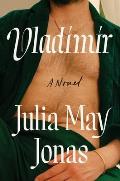 Vladimir
by Julia May Jonas
Vladimir
by Julia May Jonas
This wonderfully cynical debut is a character study of an unnamed, 58-year-old English professor as her seemingly mundane world is fractured by the actions of herself and others. As her interest in her new colleague, Vladimir, spirals into obsession, it becomes apparent that she will inevitably decide to act upon her desire. I was delightfully shocked and horrified at the lengths our protagonist is willing to go to. The characters, their choices, the questions they ask, and the repercussions that follow all highlight the subjectivity of morals and what makes something "right" or "wrong." Vladimir will leave you wondering what you would do in the same situation. Settle in and enjoy! — Charlotte S.
|